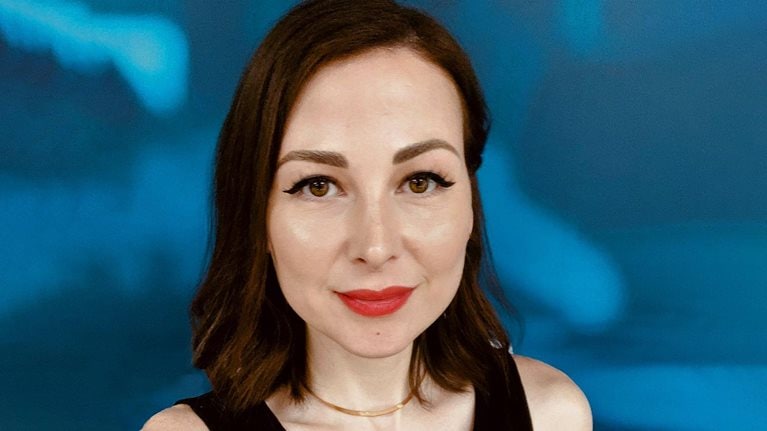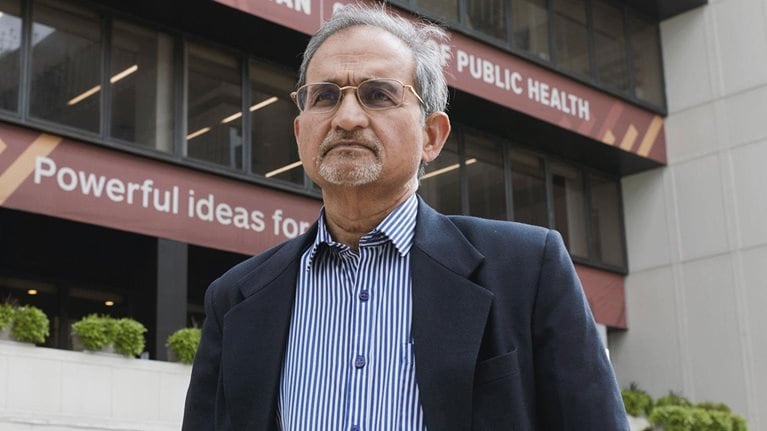Brain health is a critical determinant of overall health. Broader than simply the absence of disease, brain health is inclusive of mental wellness and the full spectrum of mental health issues, substance-use, and neurological conditions.1 Positive brain health correlates with better quality of life, improved cognitive functioning, and an overall sense of well-being.
A substantial portion of the burden of mental health challenges and substance-use disorders on individuals, communities, and societies could be alleviated by scaling the evidence-based interventions known to work. Yet systems-wide change requires institutional and individual stakeholder action across the health sector, human services, the public sector, the private sector, and civil society.
As part of the McKinsey Health Institute’s (MHI’s) Conversations on Health series, MHI coleaders Erica Coe and Kana Enomoto spoke with former US Congressman Patrick J. Kennedy about his efforts to transform mental health and addiction care delivery (see sidebar, “Biography”).
The conversation has been edited for clarity and length.
Erica Coe: MHI’s overarching belief is that it is possible to add years to life and life to years. We’ve sized that opportunity at 45 billion extra years of higher-quality life, roughly six years per person on average. But when you think of individuals who are facing mental health issues and substance-use disorders, it could be significantly more. Kana, can you share some grounding facts related to our global research on brain health?
Kana Enomoto: We’ve found that about 40 percent of people with a substance-use disorder also have a diagnosable mental health condition. About 18 percent of people with a diagnosed mental health condition will meet criteria for a substance-use disorder. In public behavioral health, we acknowledge the two are commonly intertwined, so it is important for the healthcare system and society at large to think holistically about prevention, treatment, and recovery. We can’t separate the brain from the rest of the body; all the organs are working together. Patrick, what are your thoughts on that?
Patrick J. Kennedy: In the prologue of my new book, Profiles in Mental Health Courage [Dutton, April 2024], I note that among American adults aged 18 and older, 11 million individuals had at least one mental disorder and at least one co-occurring substance-use disorder.2 When it comes to comorbidity between mental illness and addiction, silos in the advocacy movement affect policy making. It’s people with addiction here and people with mental illnesses over there, with stovepiped funding for programs. We don’t just have a problem integrating mental health and addiction treatment into healthcare; we have a problem integrating mental health and addiction into each other.
Erica Coe: “Mental health is a universal human right” was the central theme for WHO’s 2023 World Mental Health Day. What does that phrase mean to you?
Patrick J. Kennedy: As the author of the MHPAEA [Mental Health Parity and Addiction Equity Act],3 we don’t talk about mental health as just a universal right; we liken it to a medical civil right because historically mental health has been treated separately and unequally from overall health. Our goal in passing the MHPAEA, and in the years since, was to ensure resources for prevention, recovery, and treatment of mental health conditions are equivalent to those for diabetes, cardiovascular illnesses, and other chronic diseases.4
To truly mount a sophisticated effort to bring down the burden of these conditions, we have to put a big emphasis on prevention because there's no way we can treat our way out of this problem.
Erica Coe: Can you speak a bit about your personal experiences with addiction and how it informs your message to stakeholders in the health space?
Patrick J. Kennedy: I’m a person in long-term recovery, meaning I haven’t had to use drugs or alcohol since February 22, 2011. I mention that because although many 12-step and other treatment programs are committed to anonymity, it often gets confused with silence. Twenty-six million Americans are living in long-term recovery, continuously trying to combat the counterproductive thinking that gets us into trouble because it causes us to react compulsively and have self-sabotaging behaviors. But the lessons learned by those of us with these diagnoses who are in recovery are really applicable across the population.
I estimate that 90 percent of those who are in recovery also come from alcoholic homes, and may also have endured the scourges of drug addiction, suicide, or other traumas. If our healthcare system is screening people for cardiovascular disease and giving statins to prevent illness, then we must be equally interested in screening for and preventing mental health issues and substance-use disorders, because we don’t have the resources to treat our way out of this problem. If we stratify the risk, we could start with those who are at highest risk due to their family histories.
Years ago, the business community targeted science, technology, engineering, and math [STEM] education because the United States was falling behind the rest of the world. Now businesses are talking about giving kids coping, resilience, and problem-solving tools—not as an extracurricular activity but as core to education. If you know history, numeracy, and literacy but cannot identify and regulate counterproductive thinking patterns and behaviors, then you’ll have difficulty managing stress and avoiding burnout in the workplace.
Kana Enomoto: Building on your points about reaching people earlier, how do we normalize people’s ability to seek help?
Patrick J. Kennedy: Prevention is a big part of the solution. The Kennedy Forum has set Alignment for Progress goals of 90-90-90 in the United States by 2033. By 2033, we’re aiming for 90 percent of individuals being screened for mental health conditions or substance-use disorders, 90 percent receiving the evidence-based services and supports they need, and 90 percent of those treated being able to manage their symptoms and achieve recovery. More than just screening for pathologies, the work entails teaching people skills to avoid needing treatment down the line. The brain makes connections, and the more you’re locked into certain brain patterns, the more difficult it is to unwind them, so it’s important to build skills and resiliency as the brain is developing.
My son shoots hoops outside, and he’s become a good three-point shooter because he’s practicing all the time. We have to think about exercising thinking patterns that enable us to have more agency and be self-determining. Unfortunately, many of us go through life unconscious of following engrained thinking patterns because we’ve never been taught to identify them.
Additionally, more than 60 percent of therapists earn generalized degrees. They may see a patient suffering from complex grief in the morning and a patient with an eating disorder in the afternoon, but be untrained in specific types of cognitive behavioral therapy to address those conditions. As a result, patient outcomes may not be improving because they aren’t based on evidence-based interventions. Finally, achieving recovery for 90 percent means offering supportive employment, living services, and other community-based programs to build recovery. By managing these conditions in a tertiary way like other chronic illnesses, we can deliver better outcomes.
Kana Enomoto: What gives you the drive, empowerment, and hope you need to keep fighting for change?
Patrick J. Kennedy: I have five children, so this is personal for me, as it is for every parent. I want the best for them, and I know it’s not going to happen if we don’t prepare them. I love the description of not only adding years to life but life to years. I am excited to be living at a time when we’re building out a mental health movement.
Growing up, my uncles Bobby [Robert F. Kennedy] and President [John F.] Kennedy fought for the Civil Rights Act, my aunt Eunice [Kennedy Shriver] founded the Special Olympics, and my dad [Senator Ted Kennedy] fought for labor rights. I never thought I could be part of anything that meaningful, and I never intended to be a mental health advocate. Although alcoholism and depression have been with us forever, this is the most exciting time yet in terms of policy change and reorienting ourselves to a whole new way of thinking about these mental health challenges.


